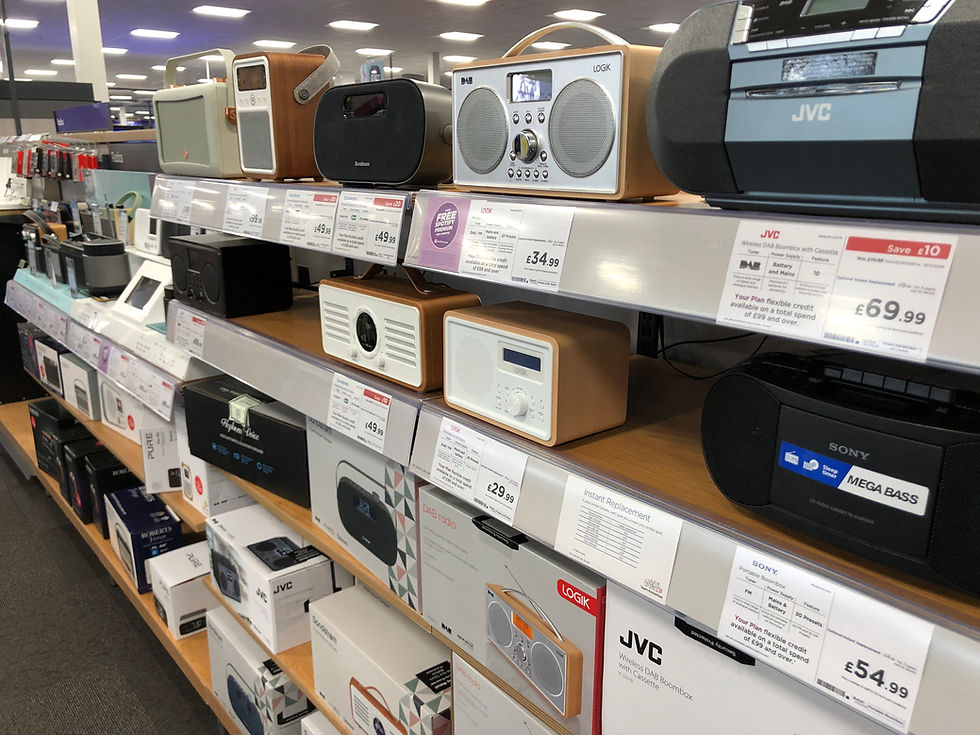
It’s eerie listening back to the 1939 announcement of war on the BBC Home Service. After the solemn words from Chamberlain, Alvar Lidell took over to announce the immediate precautionary measures – the closure of sports gatherings, cinemas, theatres and other places and entertainment: “keep off the streets as much as possible”.
One hopes that the whole sorry COVID19 episode will, thanks to bright brains and an efficient response, be handled with as few casualties as possible. As the WHO said, if you wait to be absolutely sure of a strategy, you will never do anything. No-one knows the correct answers – and experts will rarely agree. Contrary to the silly conspiracy theorists latching onto crisis to score political points, I don’t think we have reason to have anything other than faith in those charged with making the most difficult decisions of all.
As people in media, it is our responsibility to do our best to respond appropriately too. Whilst there is a responsibility to challenge, there is also a responsibility not to plump for the sexiest headline when it might alarm.
Radio has a particular responsibility. BBC 5 Live, LBC, LBC News and Radio 4 will be there to inform - and they've done it stunningly well.
We also know, from every single piece of research ever conducted, about the relationship people have with their radio. Whilst its role and audiences are changing , we know that, particularly amongst older generations, its penetration is huge. Yes, many older people jump on social media, but many also don’t. Ofcom's 2019 report suggests only 34% of 65-74 have a social media profile, falling further amongst those aged 75+. Almost half of 75+ do not use the internet. Radio's particular responsibility to older listeners is huge.
For all sorts of historic and commercial reasons, BBC radio owns the 65+ demographic, attracting two-thirds of all listening. It is also a public service broadcaster.
Whilst I know that my colleagues in many commercial radio stations will do everything they possibly can- with excellence – to respond where their focus, audience profile and its expectations dictate, but the BBC carries a special burden. As an employer it must, of course, look after its staff; but it must first and foremost try to do the job it is licensed to do – just like the emergency services. I know many hugely committed people there stand poised and willing to do their bit.
Of all BBC services, local radio is of paramount importance, reaching already over a quarter of 65+. and in days when we are confined to home, that figure will rise. The most vulnerable listeners of all will look to these services for information, reassurance and company. And they may look for help. Even in ‘peace-time’, we know people ring up to ask when Asda’s closing. In times like this, they will be ringing up because they have no-one else to turn to, sometimes in very worrying circumstances – and someone just down the road can help if radio can co-ordinate that neighbourly response.
I have faith in my colleagues across the country that they will have a contingency plan in place to ensure that these stations stay live and local for as long as possible, extending rather than diminishing their services. Creative thinking is essential, and I expect that the network leaders will be grouping with their technical teams to establish the art of the possible. Just like in WWII, the BBC had well-developed contingencies.
I know from the excellent technical and operations staff I have worked with, if you give them the challenge at the earliest possible stage, they will give you the range of solutions. If a hobbyist internet radio station can stay on air in these times – and I suspect they will – then the might of the BBC will be able to remain on-air, serving their small localities, in all cases.
Like the supermarkets, I am sure too that our industry generally will pitch in without partisanship. If this situation persists, where there’s a frequency which could be more appropriately used in a community, let’s repurpose it. And if there are broadcasters on one channel who are actually just the sort who fit the job of another, we can borrow them.
Many presenters on music stations will, however, be walking into work wondering how on earth they are going to dispense the usual ‘feelgood’ when – no-one really is. That is a challenge. You fear sounding either trite - or miserable. Firstly, I know they will pause before they say anything on the situation. It’s not something you can afford to talk about if you have not first thought through where you are heading. What is your angle and purpose? Secondly, yes, they must help us to feel better. It’s never been more important. Your station - or programme - may one be one which has a reputation for escape – in which case that’s what it should provide.
It wasn’t long before the theatres re-opened in wartime – and it wasn’t long before the BBC opened its entertainment-based Forces Programme to complement the Home Service when it was recognised that in crisis, people also need a bit of a smile.
コメント